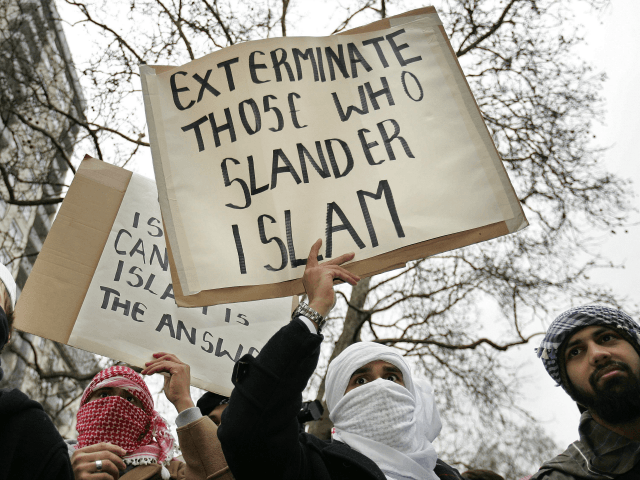WASHINGTON, D.C. – During a hearing held by the Congressional Tom Lantos Human Rights Commission on Wednesday, an expert on Islam and counterterrorism said that the United States should take a “hard line” when it comes to addressing countries that enforce blasphemy laws that, if broken or perceived to be broken, can prove deadly.
“I think we’ve come to a point in time, given the scale of violence, that we really need to put our foot down,” Kamran Bokhari, senior analyst with the intelligence firm Geopolitical Futures and a senior fellow at the Center for Global Policy, said at the hearing.
His remarks came after a member of the commission, Rep. Sheila Jackson Lee (D-TX), said she will be reintroducing a House Resolution she co-sponsored with former Rep. Joe Pitts (R-PA) and first introduced in 2015 that calls for a global repeal of blasphemy laws.
Jackson Lee asked Bokhari’s advice on how the legislation could balance respect for religious differences while preventing the kind of punishment blasphemy laws often mete out.
“It is difficult to balance,” Bokhari said. “But I will say that when it comes to blasphemy I think that we should not tolerate that because it is directly linked to violence.”
That violence could come from the government, or from individuals, or mobs that inflict their sense of justice on the accused.
“So I think blasphemy is something that we shouldn’t tolerate and we should take a very hard line on,” Bokhari said. “When an idea is promoting directly or fostering violence we should not tolerate that at all and we should make it clear to these governments that there are consequences of pursuing that kind of policy.”
Bokhari cited Pakistan and Saudi Arabia as two countries that have and enforce blasphemy laws. Last month, examples of that violence took place in both countries.
In April, 23-year-old Mashal Khan was dragged from his dorm room at a university in northwest Pakistan and beaten and killed by a mob after he criticized his classmates and possibly the Islamic faith, although Khan was a Muslim.
“It has become extremely easy to accuse people of blasphemy,” Tahira Abdullah, an independent human rights defender, said in The Guardian’s report on the murder. “The very word raises emotions to such an extent that people take power into their own hands and do vigilante mob actions.”
Since 1990, at least 65 people have been murdered in Pakistan over blasphemy allegations, and responsibility for these extrajudicial killings lies partly with the country’s rules, Abdullah said.
The UK Independent reported in April that a man in Saudi Arabia has been sentenced to death on charges of apostasy after losing two appeals in court.
Local media identified the man as Ahmad Al Shamri, in his 20s, from the town of Hafar al-Batin, who officials identified in 2014 after he allegedly uploaded videos to social media renouncing Islam and the Prophet Mohammed.
In its 2015 religious freedom report, the State Department singled out Afghanistan, Saudi Arabia, Iran, Sudan, Pakistan, and Mauritania as being among the countries that have harsh punishments for blasphemy.
“Such laws conflict with and undermine universally recognized human rights,” the report said.
“False accusations, often lodged in pursuit of personal vendettas or for the personal gain of the accuser, are not uncommon,” the report said. “Mob violence as a result of such accusations is disturbingly common.”
Just this month, the State Department warned Americans about traveling to Pakistan because of its strict blasphemy laws.
“Sectarian violence remains a serious threat throughout Pakistan, and the Government of Pakistan continues to enforce blasphemy laws. Religious minority communities have been victims of targeted killings and accusations of blasphemy,” states the U.S. State Department in the travel warning.
“Throughout Pakistan, foreign and indigenous terrorist groups continue to pose a danger to U.S. citizens,” the warning said. “Evidence suggests that some victims of terrorist activity have been targeted because they are Americans. Terrorists and criminal groups have resorted to kidnapping for ransom.”
According to its website, “the bi-partisan Tom Lantos Human Rights Commission was established with the unanimous consent of the United States House of Representatives in 2008. The Commission is charged with promoting, defending and advocating for international human rights as enshrined in the Universal Declaration of Human Rights and other relevant human rights instruments.”

COMMENTS
Please let us know if you're having issues with commenting.